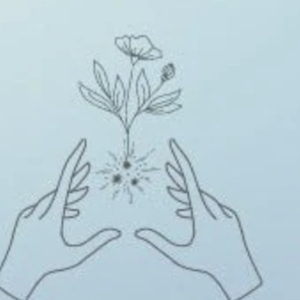Formal, Read Easy
By Iona Cleave
Short stories: an informal approach to formal reading, so worry not this is all about Formal made easy.
It’s week 4 of isolation. Restless and craving a distraction you may have tried painting, baking your own bread or even home aerobics. Yet, if your mind is aching for some greater stimulation, there is truly no time like the present to tackle the kind of writers you may have always been afraid of. Perhaps for some, to finally dive in and learn lessons from the greats of the literature world. Yet, where even to start?
With Tolstoy’s ‘War and Peace’ at 1,225 pages or Shakespeare’s complete works weighing the same as a small child, who wouldn’t be discouraged, or a little frightened?
Those old, slightly worn, bound book covers sit on our shelves; passed down through generations, and gathering dust. “The classics”, the “I cannot believe you haven’t read…” books stare back at us, guilt rising the longer they remain untouched, unloved and unread.

This is where the power of the short story triumphs. This bitesize form of story-telling can provide an easy, accessible step into exploring more challenging authors. They provide a more informal approach, to formal reading. A gentle step into the ocean, a soft walk from the sand rather than a jump headfirst from a cliff.
Many companies have provided us with the push we all needed, such as Penguin Books with their ‘little black classics’ series. The greats, the masters in their art – shortened and wrapped in little black jackets. From Homer to Austen, Marx to Mozart, the magic of Wilde or wisdom of Dante, this collection offers short stories spanning centuries, genres, form, fact and fiction. It is a very impressive selection – and at £2 a book and an average of 60 pages, the heroes of the literature, music or philosophy worlds have been brought right down to earth, into our laps.
If you have been put off in the past, why not use this time of isolation to get back into reading and get to know authors – old, new and everything in between. A few hours is all the time you need for these snippets of brilliance, and you will come away all the wiser.

However, short stories are not only reserved for those who already have a place in history. There is an art to the short form and more people are celebrating this, with lesser-known, modern authors appearing in full force. Is this the new approach to story-telling?
New short story collections are also exploding onto the scene from diverse and important voices. These are often writers from across the globe, challenging established forms of storytelling and often rallying against the dominance of Western work. From Adichie’s powerful collection examining family relationships crossing between America and Nigeria, Kali Fajardo-Anstine’s stories of fierce and complex Indigenous heroines to Daniel Alarcón’s shattering depictions of human suffering and war across borders.
These are some of the new waves of masters of the short form, urging us not to shy away from complicated topics or writing, and so are all the more deserving of our attention.
Short stories aren’t just for those with no time on their hands. They exist as their own art form, with their own literary magic and skill of providing a powerful impact within a short amount of pages.
So for all those feeling a little lost in these uncertain times, delve into a short story – a classic, a debut or just anything exciting. Reading is good for the soul.
Cent has always celebrated the wonders of the short story since its creation. Here is one from the latest issue – Influencer
If you enjoyed this, explore more on the art of the Short Story
Or why not join your local Library





